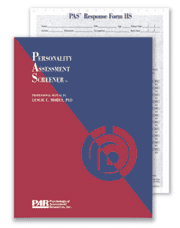Personality-Inventory-for-Children_-second-edition-_PIC-2_
Personality Inventory for Children, Second Edition (PIC-2) by David Lachar, Ph.D. and Christian P. Gruber, Ph.D. This highly regarded test is widely used by clinical and school psychologists to evaluate the emotional, behavioral, cognitive, and interpersonal adjustment of children and teens. The PIC-2 cis one of three coordinated instruments: It provides the parent’s description of […]



